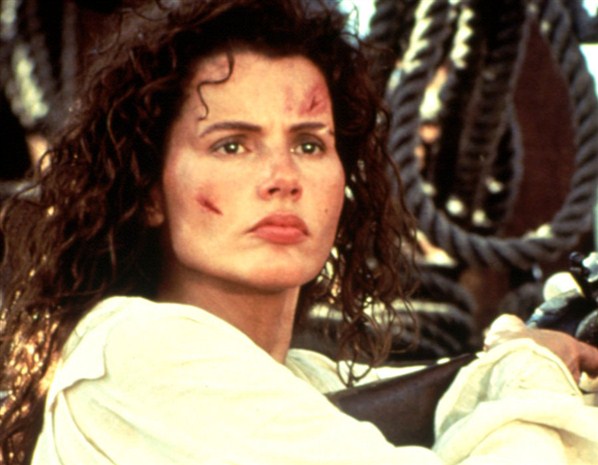UN Creates Working Group On Broadband And Gender

Actress Geena Davis asks the UN Broadband Commission for backing, and gets it
Academy award-winning actress and activist Geena Davis, famous for her performances in nineties classics Beetlejuice, The Fly, Thelma and Louise and Cutthroat Island, has convinced the UN Broadband Commission to create the working group on Broadband and Gender.
Davis addressed the Commission in New York yesterday, asking it to help “harness broadband to empower girls and women”. Following her speech, the Commission created the working group on the spot, with one of the members donating $1 million to the cause.
Once she was a pirate
In June this year, Davis was named International Telecommunication Union’s (ITU) special envoy for women and girls in the field of technology. In this role, she has been actively promoting ITU’s initiatives, speaking on the importance of extending access to technology and highlighting the career opportunities available to young women in the tech sector.
 At the Sunday meeting, Davis asked the UN Broadband Commission to set up a special working group on gender that would promote the ways broadband networks could be used to empower girls and women, foster female entrepreneurship and create new business opportunities.
At the Sunday meeting, Davis asked the UN Broadband Commission to set up a special working group on gender that would promote the ways broadband networks could be used to empower girls and women, foster female entrepreneurship and create new business opportunities.
“Broadband will be key to meeting the Millennium Development Goals, providing women with the means to educate themselves and their children; improve their own health and the health of their families and communities; start their own businesses; keep themselves safe; and innovate to build and shape the future they want,” said Davis.
“This Commission can play a powerful advocacy role by speaking out strongly for the greater engagement of girls and women in the digital revolution taking place all around us,” she added.
The Commission has agreed to establish a special working group on Broadband and Gender. It will be headed by Helen Clark, administrator of the United Nations Development Programme.
The group received a spontaneous donation of $1 million from commissioner Reza Jafari, while several other members of the commission agreed to prepare a report on opportunities and barriers for girls and women, to be presented at the next meeting of the Commission in Mexico City in March 2013.
“We are grateful for the support of committed, high-profile ambassadors like Ms Davis, who greatly increase the impact and reach of our message about the catalytic role ICTs can play in gender empowerment,” said Dr Hamadoun Touré, ITU secretary-general.
Earlier this year, ITU launched a multilingual web portal focused on helping girls and women access training, job opportunities and career information in the fast-growing ICT sector.
Meanwhile in the UK, the Royal Society has announced that it will be holding an “edit-a-thon” on 19 October, to add and update Wikipedia profiles of women in technology and engineering.
The event is being organised to celebrate the legacy of Ada Lovelace, a mathematician that worked with Charles Babbage on his “difference engine”, the machine which is widely considered to be the first ever computer.
Test your CEO leadership knowledge! Take our quiz!
